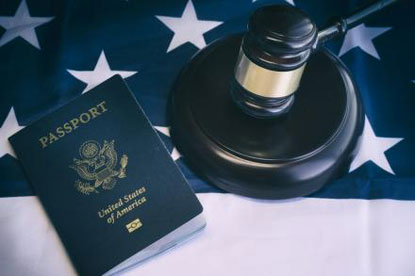Summary: A federal judge said that she will not void Joe Arpaio’s convictions, despite his pardon from President Donald Trump.
Arizona Sheriff Joe Arpaio was famous for his anti-immigration stance, and a court found him guilty of criminal contempt after he refused to stop racial profiling Latinos. The staunch Republican was pardoned by President Donald Trump in August, but on Thursday, Judge Susan Ritchie Bolton said that she would not void his conviction.
“The power to pardon is an executive prerogative of mercy, not of judicial recordkeeping,” Bolton wrote in her decision. “To vacate all rulings in this case would run afoul of this important distinction. The Court found Defendant guilty of criminal contempt.”
According to NPR, U.S. District Judge Bolton said that a pardon “releases the wrongdoer from punishment and restores the offender’s civil rights without qualification” and that “it does not erase a judgment of conviction, or its underlying legal and factual findings.” Bolton refused to erase Arpaio’s conviction because that would revise “historical facts.”
Bolton said that Arpaio’s pardon allowed him to be free of punishment but that it does not “blot out guilt.” She added that accepting a pardon implied an admission of guilt.
While a local sheriff, Arpaio was famous across the country for his hard-line stance on searching for and arresting illegal immigrants. After complaints of racial discrimination, Arpaio was ordered in 2011 to discontinue stopping people without cause, but the self-professed “America’s Toughest Sheriff” openly disobeyed the court. In July, Judge Bolton presided over a trial that found Arpaio guilty of contempt, and he was supposed to be sentenced in October. However, his sentence was never given because Trump intervened in August with a pardon.
According to NPR, Arpaio’s situation is unique because he is saved from punishment by accepting Trump’s pardon but he may be unable to actually clear his name on the record.
The Department of Justice said on its website that a pardoned offense does not mean your record will be cleaned but they recommended that Arpaio’s conviction be thrown out, according to Vice.
On Thursday, Arpaio’s legal team filed an appeal to Judge Bolton’s ruling.
“The sheriff views it as a form of resistance to the president’s pardon, and I view it as a resistance to the law,” Arpaio’s lawyer Jack Wilenchik told CNN.
In August, Trump said that Arpaio was pardoned because he gave “admirable service to our Nation.” However, The Phoenix New Times wrote that he had failed to investigate sex abuse claims and had tortured Latino prisoners in what Arpaio called “concentration camps.” According to the paper, Arpaio also frequently referred to Latinos using racial slurs.
- Joe Arpaio Convicted of Criminal Contempt
- Top New York Immigration Law Firms
- Court Rules Maricopa County Sheriff’s Office Violated Constitution













































